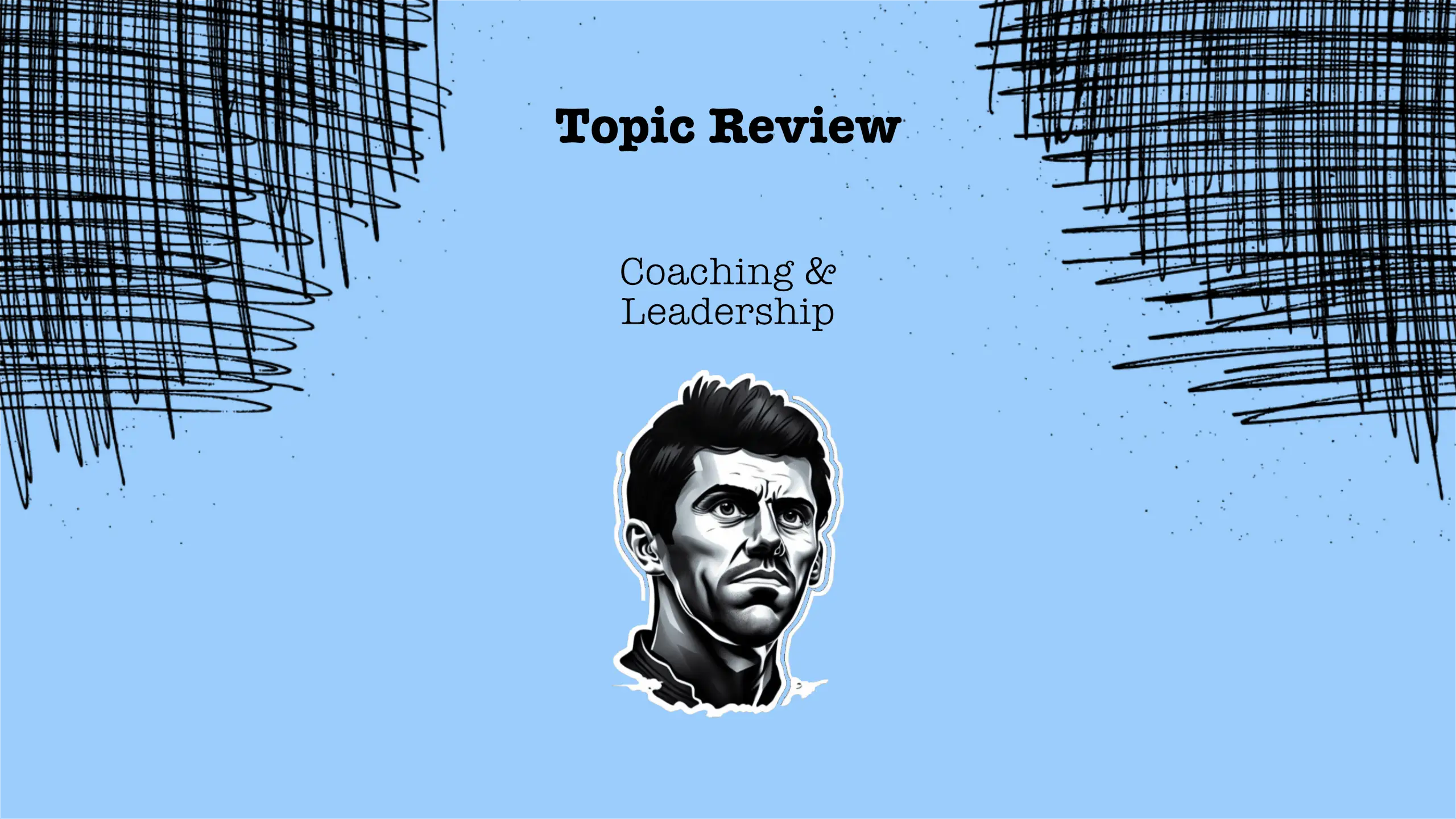Coaching represents a dynamic process of expressing implicit knowledge through language, turning unspoken expertise into shared understanding. This transformation promotes aesthetic awareness — the ability to think, feel, and reflect on experience — and initiates aesthetic learning processes that connect cognition with emotion.
According to Reinhard Stelter and Sidonio Serpa (2017), meaning-making in coaching occurs both individually and socially, combining personal reflection with collective dialogue. Learning is thus both experiential — rooted in lived experience — and social, developed through interaction and narrative exchange.
Within organizations, and particularly in sport, leadership relationships are formed in these ongoing interactions. Considering that adults spend nearly a quarter of their lifetime in work environments, understanding power, influence, and connection within teams becomes an essential part of both coaching and leadership practice.
Key Ideas
1. Coaching as attention to the present moment
Effective coaching begins with attentive observation of the present moment — “the concrete situation.” The coach’s role is to uncover and articulate implicit knowledge, helping athletes become aware of what is usually automatic or unspoken in their performance. This process transforms tacit insight into conscious understanding.
2. The role of language and aesthetic learning
Coaching translates internal experiences into language, which serves as a bridge between intuition and reflection. Through dialogue, coaches and athletes engage in aesthetic learning, where thinking, feeling, and reflection converge to refine awareness of performance and purpose.
This dialogue-oriented process goes beyond instruction — it invites self-discovery, encouraging athletes to internalize lessons through emotion, reflection, and lived experience.
3. Meaning-making and experiential learning
Stelter identifies two main pathways to meaning-making:
- Personal meaning-making — formed through direct experience and life contexts, aligned with the concepts of aesthetic learning and experiential meaning-making.
- Social meaning-making — developed through interaction, negotiation, and storytelling, emphasizing relationships and shared understanding.
Additionally, experimental meaning-making integrates past experiences and current awareness — blending learned knowledge with real-time perception (the pre-reflective, or “auto-pilot,” dimension).
4. The phases of Epoche
The concept of Epoche (from phenomenology) supports coaches in cultivating awareness and reflection through three phases:
- Suspension of habitual thoughts — pausing automatic judgments.
- Reorientation of attention — turning focus from external distractions to internal awareness.
- Letting go and responsiveness — being open to immediate experiences and embodied knowledge.
This reflective stance allows both coaches and athletes to approach situations with clarity, openness, and empathy.
5. Leadership as influence and interaction
Leadership is defined as a set of behaviors influencing individuals and groups toward specific goals, built upon interaction and power dynamics.
Within sport, transformational leadership stands out as a model of inspirational motivation and intellectual stimulation. It fosters ownership of shared vision, emotional commitment, and self-driven excellence.
In this sense, leadership and coaching share a common foundation — both aim to empower others to grow, align with values, and take responsibility for their development.
Selected Citations
- “Epoche — suspension of judgment; an attitude of non-involvement to gain peace of mind for daily living.”
- “Leadership — a set of behaviors influencing individuals and groups toward specific goals, characterized by interaction and power.”
- “Transformational leadership — personal influence that promotes ownership of vision, inspiration, and intellectual stimulation.”
- “Coaching — an approach to learning and leadership aimed at developing athletic, personal, and social potential, and the ability for self-regulation.”
- “Aesthetic — relating to sensing, feeling, and awareness.”
Academic Reference
Stelter, R., & Serpa, S. (2017). Coaching and Leadership.
External References
- Chelladurai, P. (2007). Leadership in Sports. In Tenenbaum, G., & Eklund, R. (Eds.), Handbook of Sport Psychology. New Jersey: John Wiley & Sons, pp. 113–135.
- Stelter, R. (2007). Coaching: A Process of Personal and Social Meaning Making. International Coaching Psychology Review, 2(2), 191–201.
